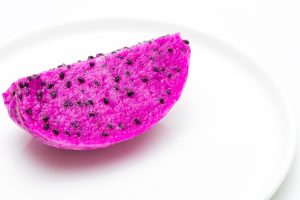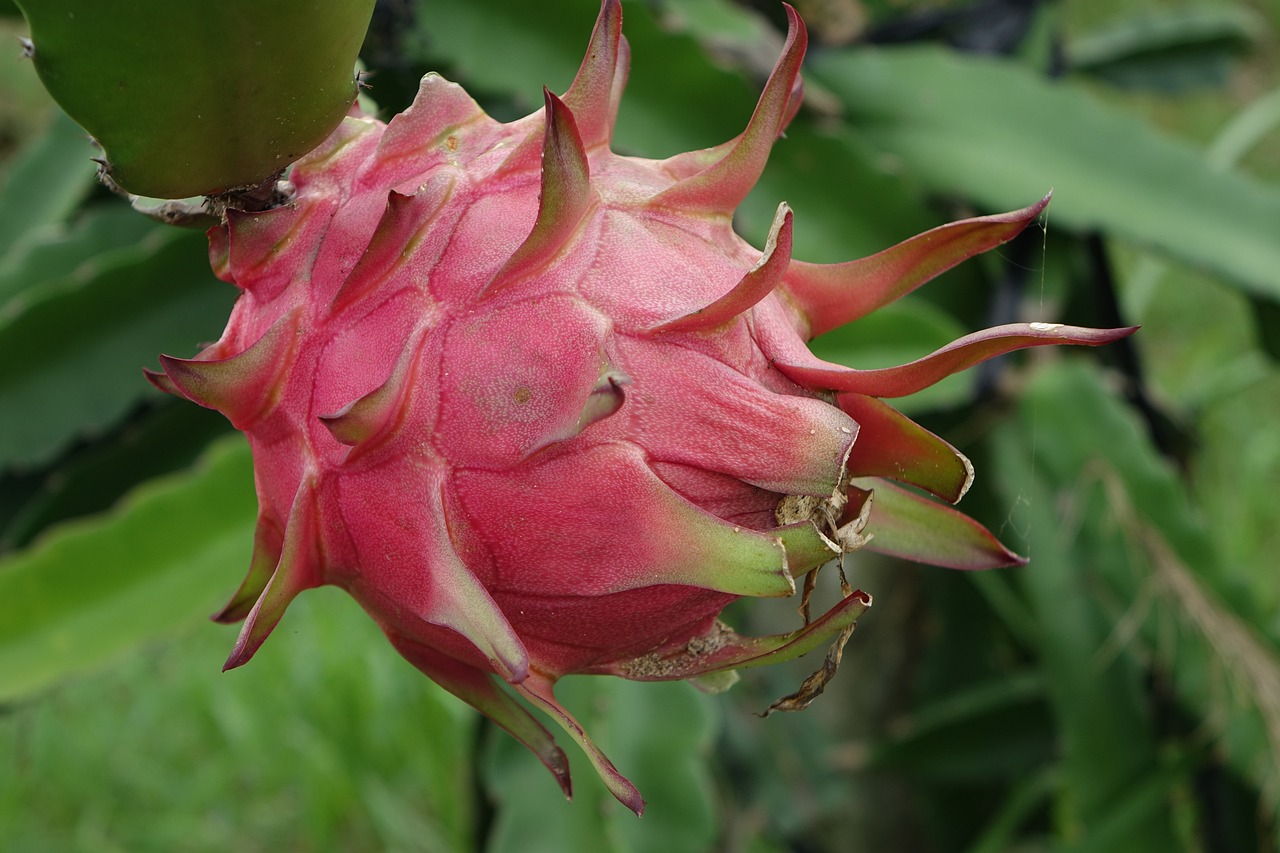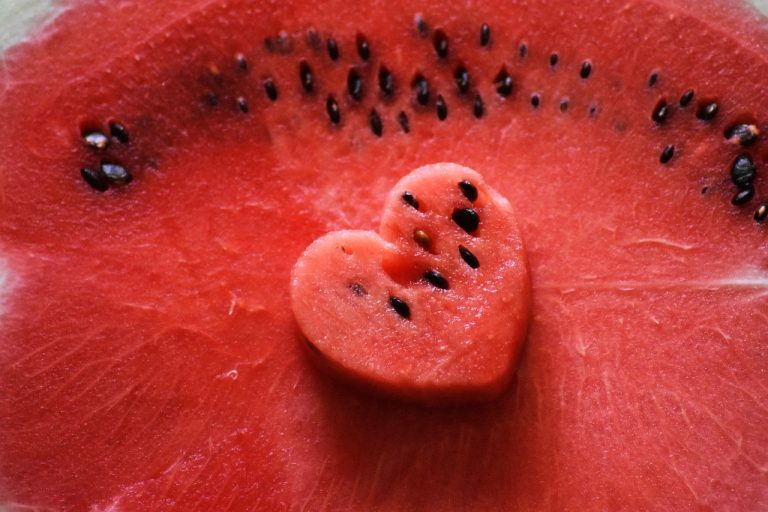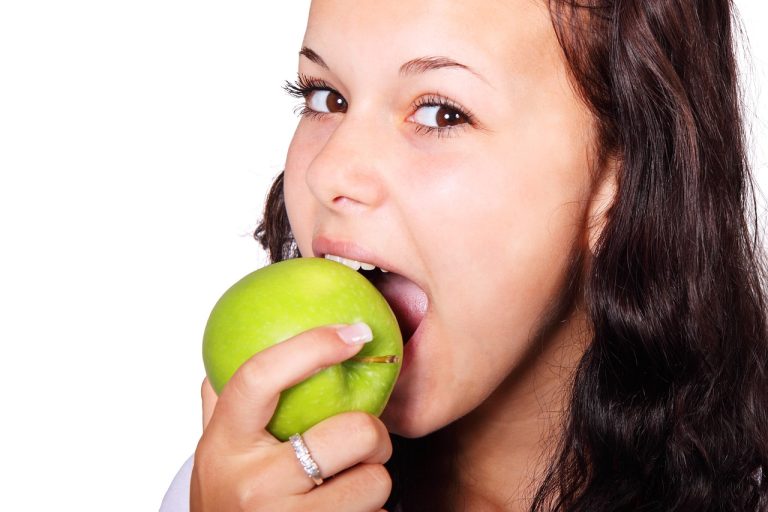Can dogs eat dragon fruit?
“Dragon fruit” is also known as pitaya and it is a tropical fruit native to Central America. Its vibrant pink color and sweet, slightly-tart taste have made it popular on social media and among health food circles.
But can dogs eat dragon fruit? That’s a question many dog owners have been asking lately maybe out of curiosity or trying to find some more appealing food options for their dogs.
Can dogs eat dragon fruit as much as humans
Dragon fruit is very much safe and nutritious for humans to eat, but it’s important to understand the risks of feeding it to dogs before giving it to your furry friend.
Dragon fruit is not ideally recommended for dogs. The fruit itself is not toxic, but the seeds contain traces of cyanide, which can be dangerous for dogs if they consume too many of them.
The difference in how cyanide affects dogs and humans has to do with the way we process the chemical. Dogs have much lower levels of rhodanese, an enzyme that helps to break down cyanide. As a result, even small amounts of cyanide can be harmful to dogs. Humans have much higher levels of rhodanese, which helps to neutralize the effects of cyanide.
Also, the high sugar content of dragon fruit can cause digestive issues for dogs including diarrhea and vomiting.
The fruit is high in fructose, a type of sugar that can be difficult for dogs to digest. Fructose is often poorly absorbed by the canine digestive system, which can lead to diarrhea and vomiting. Humans, on the other hand, have enzymes that help to break down fructose more effectively, so we can tolerate higher amounts of the sugar without any negative side effects. So, it’s all about how our digestive systems process different sugars.
Should you give your dog dragon fruit?
Since you now understand the risk involved in feeding your dog dragon fruit it is rather now a thing of choice whether or not to go ahead.
Cut pitaya
However, it is important to understand that dogs are different and what may adversely affect one may not for the other. Therefore, you may still still serve your dog dragon fruit but the quantity should be strictly gauged.
– Feed dragon fruit in very little proportion as part of a balanced diet.
– Do consult with your veterinarian before introducing any new foods to your dog’s diet.
– Dragon fruit contains sugar and can lead to weight gain or diabetes in dogs. A 100-gram serving of dragon fruit contains about 9 grams of sugar. While this is lower than some other fruits, like bananas or grapes, it’s still more than some other fruits, like berries. And remember, while a small amount of sugar is okay for most dogs, it’s best to limit their intake. If you’re giving your dog dragon fruit, make sure to give them a small amount and monitor their reaction.
– Don’t feed your dog the seeds of the dragon fruit, as they can be a choking hazard.
A safe and healthy serving size of dragon fruit for a dog is usually about 1-2 tablespoons, or 15-30 grams. This will vary depending on the size and weight of your dog, so it is better to consult with your veterinarian to get specific recommendations.
Some dogs can be picky when it comes to food because every dog has different tastes and preferences, so don’t worry if yours isn’t interested in dragon fruits, there are some other healthy options that many dogs enjoy including carrots, green beans, sweet potatoes, and pumpkin. You can also try offering your dog some frozen fruit as a special treat.
Nutrition content in dragon fruit suitable for dogs
While Dragon fruit may not be the ideal fruit for your dog, it still contains some nutrients which can be beneficial to dogs.
Most relevant nutrient for dogs
The most relevant nutrients for dogs are:
– Fiber: Dragon fruit is a good source of dietary fiber, which can help promote digestive health and regularity in dogs.
– Potassium: This mineral is important for maintaining a healthy heart, muscles, and nerves in dogs.
– Vitamin C is essential for dogs’ immune system health, and dragon fruit is a good source of this important vitamin. Additionally, dragon fruit is low in fat and cholesterol-free, making it a healthy choice for dogs.
Other fruits which can act as substitute for dragon fruit
Fruits that are safe and healthy for dogs include:
– Raspberries
– Blackberries
– Blueberries
– Strawberries
– Cantaloupe
– Watermelon
– Kiwi
These fruits are packed with nutrients and antioxidants, but they have less sugar than other fruits, like mangoes or grapes. They make great treats for dogs, and they can even be frozen for a cool treat on a hot day.
It is a common misconception that dogs are strictly carnivores, but they are actually considered omnivores. While dogs do need more protein than humans, they also need some plant-based nutrients in their diet. Dogs have evolved to be able to digest both animal and plant-based foods, and they can benefit from a variety of ingredients in their diet. So, it’s not necessary to feed your dog only meat. A balanced diet that includes some plant-based foods is best for their health.
A complete and balanced diet for a dog should include all of the essential nutrients they need, including protein, carbohydrates, fat, vitamins, and minerals. Dogs are omnivores, so they need a diet that contains both animal and plant-based ingredients. Some good options for a balanced diet for dogs include commercial dog food, homemade dog food, and raw diets.
Conclusion
Dragon fruits are not so great for dogs but can still be fed cautiously in little quantities.
There are some other fruits that are safer and healthier for them to eat. Apples, bananas, blueberries, watermelon, and cantaloupe are all good options for dogs. These fruits are low in sugar and high in fiber, vitamins, and antioxidants. Just be sure to remove the seeds and peel from any fruits before giving them to your dog. And of course, always give fruits to your dog in moderation as part of a balanced diet.


